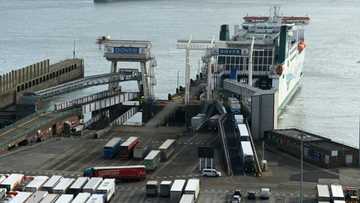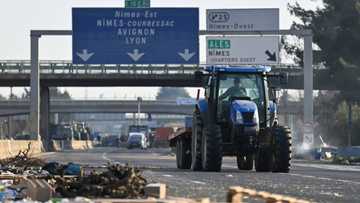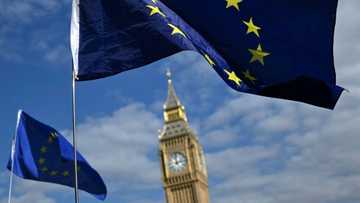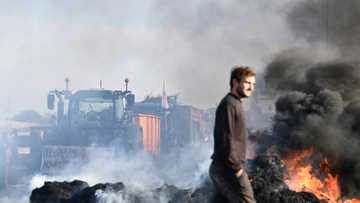Farmer discontent spreads in EU as France seeks to quell protests
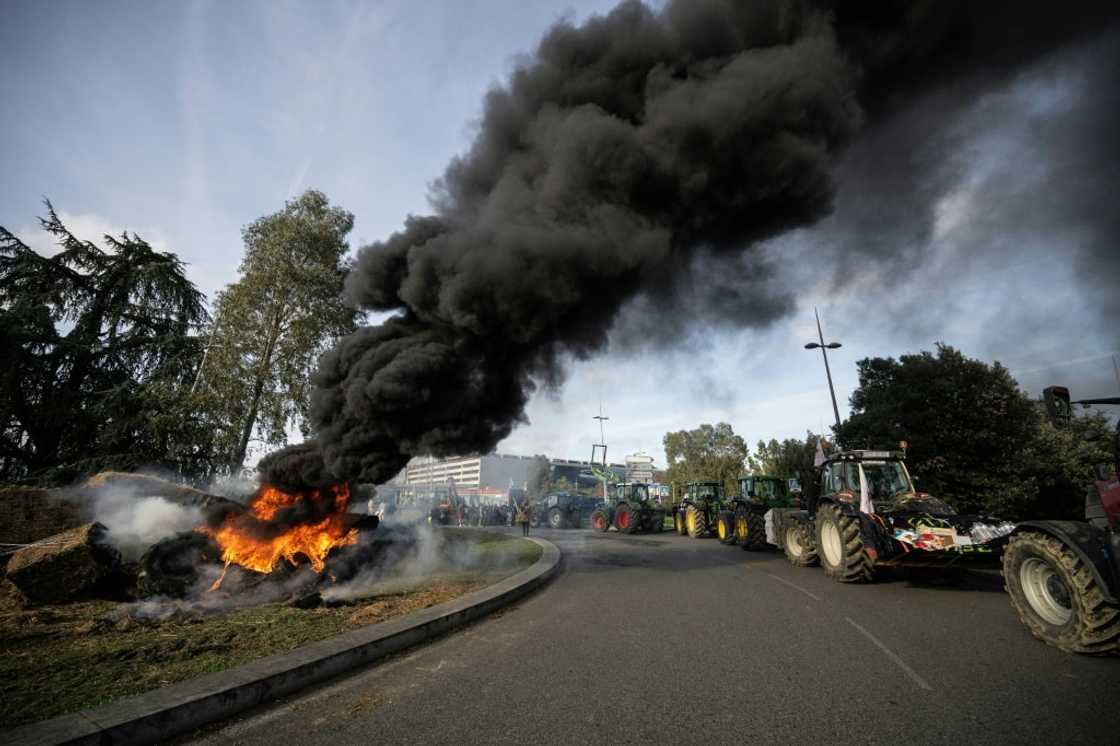
Source: AFP
Protests by angry farmers spread across the European Union on Tuesday, as the French government scrambled to placate agriculture workers who have been moving towards Paris in long convoys of tractors, blocking key motorways.
Their litany of complaints range from rising costs to meet carbon-cutting targets, fuel prices, inflation, bureaucracy, and Ukrainian grain imports.
The French mobilisation has blown up into a serious crisis for Prime Minister Gabriel Attal only weeks into the job.
Addressing parliament Tuesday, Attal promised that his government stood ready to resolve the crisis "without ambiguity", and praised the agriculture sector as "our force and our pride".
President Emmanuel Macron, speaking during a state visit to Sweden, said he was opposed to a trade deal between the European Union and South American bloc Mercosur, which has emerged as a key grievance for farmers worried about foreign competition.
But Macron also said that it was "too easy" to blame all the farmers' woes on the EU.
PAY ATTENTION: Let yourself be inspired by real people who go beyond the ordinary! Subscribe and watch our new shows on Briefly TV Life now!
"We did a lot in the last years to help," he said.
Macron said "we will try to simplify the rules in order to assist the agricultural sector" and vowed to show "flexibility" on certain rules, but added that "we also cannot... say that we can do like we did before".
'Not like before'
After more than a week of intensifying French protests, disgruntled farmers elsewhere in the EU have joined the movement in numbers.
Dozens of Italian farmers staged a protest with tractors near Milan Tuesday, the latest in a series of small demonstrations across the country.
Spanish farmer unions said they would join the EU movement with a number of "mobilisations", while Greek Prime Minister Kyriakos Mitsotakis offered to speed up financial aid to farmers to stave off protests engulfing other countries.
Germany, the Netherlands, Poland, Belgium and Romania have all seen farmers protesting.
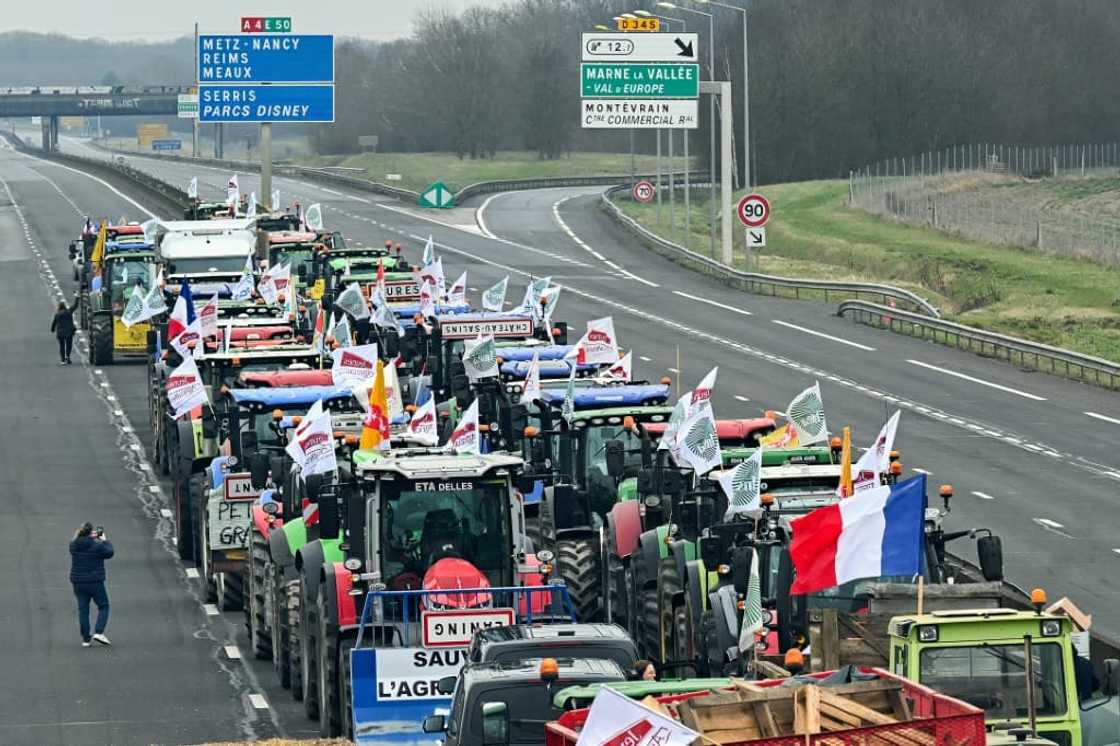
Source: AFP
Much anger is directed at environmental requirements included in the EU's updated Common Agricultural Policy (CAP), and the bloc's forthcoming "Green Deal".
In France, protests have spread to the capital where tractors, hay bales and other objects have prevented motorists from entering Paris along several key routes.
The government has so far promoted a softly-softly approach with the protesters, while making clear that any attempts to block Paris's main airports or the vast Rungis wholesale food market to the south of the city would be a red line.
'Feed not starve'
A convoy of producers who left on Tuesday morning from the southwestern town of Limoges heading for Rungis briefly changed route after being blocked by gendarmes, organisers said.
Armoured vehicles of the gendarmerie have been deployed around Rungis to ensure food supplies are not disrupted.
Arnaud Rousseau, the leader of the biggest farmers' union FNSEA, said he was against any disruption of food distribution.
"Our objective is not to starve French people, but to feed them," he told the Europe 1 broadcaster.
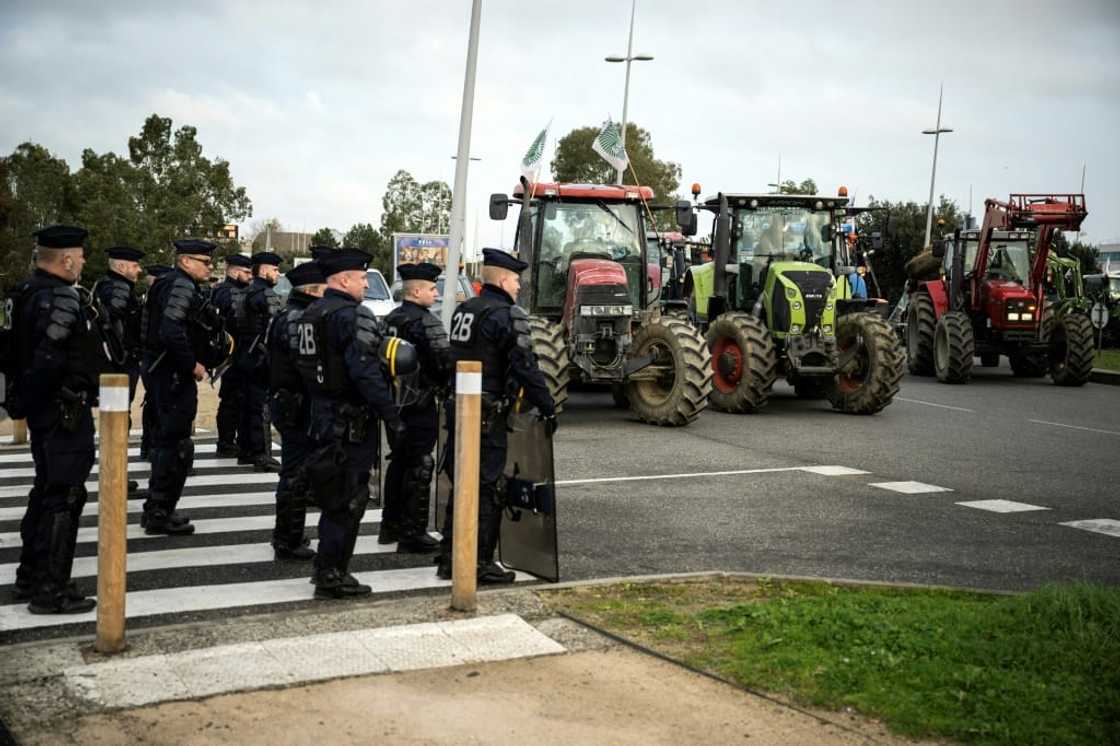
Source: AFP
"We have told rival unions since the start that heading to Rungis in a show of force is not a good idea," he said.
Farmers unions have judged that a first battery of measures announced on Friday did not go far enough.
"The watchword is to stay as long as we do not have an answer to the main issues", Thomas Robin, a cereals farmer producer and also of the FDSEA, told AFP.
French farmers are angry about incomes, red tape and environmental policies they say undermine their ability to compete with other countries and have left France increasingly dependent on imports.
"Obviously we want to be treated better, but more than anything we want fewer free-trade agreements," Thierry Bonnamour, a farmer from the Savoie region, told AFP at a roadblock near the south-eastern city of Lyon.
The Mercosur deal as well as Ukrainian grain imports into the EU are on the agenda of talks scheduled between Macron and EU Commission chief Ursula von der Leyen Thursday.
France is the EU's biggest beneficiary of farming subsidies under the CAP, receiving more than nine billion euros ($9.8 billion) per year.
Once the bloc's biggest agricultural exporter, it is now third the Netherlands and Germany.
PAY ATTENTION: Follow Briefly News on Twitter and never miss the hottest topics! Find us at @brieflyza!
Source: AFP

